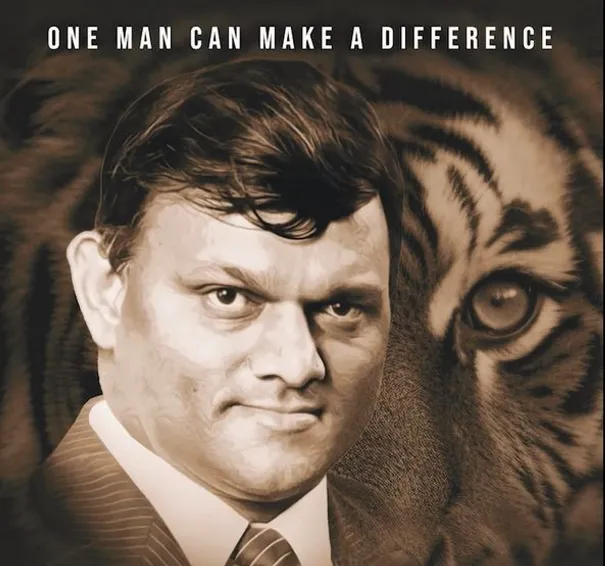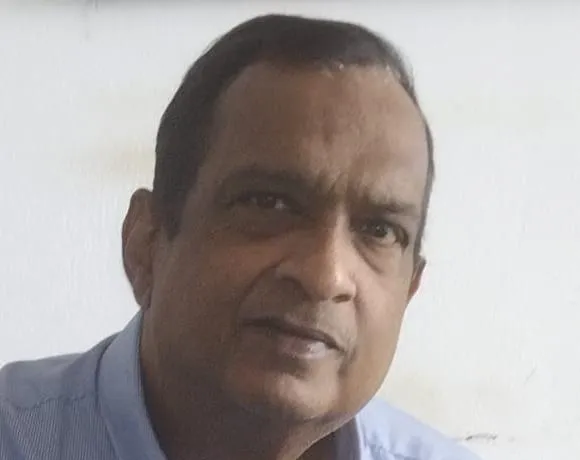
A documentary Bengal Tiger – The Rajbansi Story, on the life of politician Amichand Rajbansi, released last week.
Image: File
LOVED him or hated him, you just could not have ignored him. He was constantly in your face in the media and at most community events. In the light of the long-awaited documentary/film of his life being released last week by my friend, director LX Seth, I decided to pay homage to Mr Amichand Rajbansi, a true son of Durban.
I knew him well, as he was a keen follower of my newspaper columns and a diehard fan of my Friday night radio show for which he did a spectacularly innovative advertisement. We met up quite often at social functions and we enjoyed an amicable and congenial relationship. Neither a slap in the face from an over enthusiastic AWB supporter nor being labelled an apartheid government stooge would sway him from his mission: to give Indians a voice in government; in the country.
Political analyst and now, man about town, Kiru Naidoo, once said: “What made Rajbansi relevant was that he was able to speak the language of the marginalised and alienated in the poor areas of Phoenix and Chatsworth.”
If the Bengal Tiger, as he was known, had survived until now, this year he would have celebrated 83 years of living. An eventful, sometimes riotous, but certainly, a roaring life.
Amichand Rajbansi was born on January 15, 1942, in Clairwood. His dad, Ethwaroo Rajbansi, was a builder and carpenter and his mother, Suminthra, was a housewife. He had one brother, Devraj, and three sisters, Kalawathi, Bidda and Shanthi. The young man attended Clairwood Secondary School and thereafter college, where his major subjects were history and psychology. It was there where he developed a love for debate and public speaking.
In between becoming a sports administrator, a noble vocation seemed to have been part of his life. His first wife Ashadevi, who he married on December 31, 1967, recalled in a Sunday newspaper in a columnist’s interview that she fell in love with Rajbansi when he was her Standard 7 Latin teacher at Chatsworth High School.
To quote: “I was hopeless at Latin and he gave me a good hiding,” she said with a slightly hysterical giggle.
“I think he used that as an excuse to come and give me extra tuition at home.”
Their wedding was a big, colourful and glamorous affair and her sister married at the same event too. Four daughters, Vimlesh, Vimlekha, Vimtha and Vinshana, and a son, Vimal, were the products of this well publicised and loving union. She spoke sadly about her children being regularly intimidated and threatened on the phone during her husband’s political career.
Rolling back a bit, Rajbansi served long as a sports administrator, professional soccer referee and civic leader, and was elected to the South African Indian Council in 1974. Two years later he resigned from the SAIC and in 1981, he formed the National People’s Party (NPP) where he was elected leader. Rajbansi’s party took control from the SAIC in the 1981 elections for the Council. Merely 6% of the Indian electorate had participated.
In 1984, the NPP stood for the newly-constituted House of Delegates (HOD), the Indian only parliamentary chamber, and won the majority of seats in the House. As a result, Rajbansi became a member of the South African Cabinet and chairman for the Ministers' Council for Indian Affairs. His leadership of the House of Delegates was often embroiled in controversy, and in May 1987, his NPP lost its majority to an opposition coalition. However, Rajbansi did not resign his chairmanship, and he survived the leadership challenge with the help of PW Botha.
A time of turmoil ensued with Rajbansi being investigated on allegations of corruption, maladministration and perjury. Much happened during this period that would have floored a normal man. However, Rajbansi lived up to his once given nickname “kanniedood”, the name of a plant that survives in the most hostile environment.
When South Africa achieved democracy in 1994, the NPP became the Minority Front and continued to draw support from small pockets of the Indian community. After the 2004 elections, Rajbansi made an alliance with the African National Congress and he became MEC for Sports and Recreation for KwaZulu-Natal Province. In January 2009, Rajbansi received a Lifetime Achievement Award from the India International Friendship Society in New Delhi, in recognition of his selfless service to humanity. He was the only African to receive this award.
In among all of that there was turmoil on the home front as well. Rumours were that the relationship between Ashadevi and Rajbansi soured when the former joined the IFP. The couple separated in 1998. Political difference and alleged paranormal activity in their marital abode were cited as attributing to their separation. They divorced in 2000 and a year later, he married Shameen Thakur.
In the 2011 local government elections the party won 11 seats in the 204-seat council of the eThekwini Municipality making it the third largest party. On October 26, 2011, the Bengal Tiger was admitted to the Umhlanga Hospital. Sadly, Rajbansi could not defeat the great adversary and he died on December 29, 2011, at the age of 69, after a long battle with bronchitis.
Both his political party and his family obviously miss his calming hand and sharp tongue to guide them and align them. Both are struggling in their own ways. The five children and his second widow are splintered. His great love and first wife, Ashadevi, is living an almost reclusive life with a close relative. A sad shadow of her colourful, feminine and flamboyant self. Not surprisingly, Rajbansi made provisions for her welfare in his last will and testament.
Unlike the popular “Rocky” theme song, Eye of the Tiger by the group Survivor, The Raj demonstrated that he had “the heart of the Tiger” – a Bengal one nogal.
The Tiger is still spoken of these days, either in hushed tones, or with loud praises. He assisted legions of families and individuals on a personal level and these ones revere him. Others will never forget his regular entertainment events at sports arenas, where “supper will be served” and his beloved Flash Entertainers drove the crowd wild with their unique charm. His Milk Carnivals were legendary. Undoubtedly a local hero. The Bengal Tiger – the cat with nine political lives.

Ravi Govender
Image: File
Ravi Govender is a former POST sub-editor and Lotus FM radio presenter. He is a published author, a freelance editor and film producer in training. He can be contacted at: [email protected]
** The views expressed do not necessarily reflect the views of IOL or Independent Media.
Related Topics: